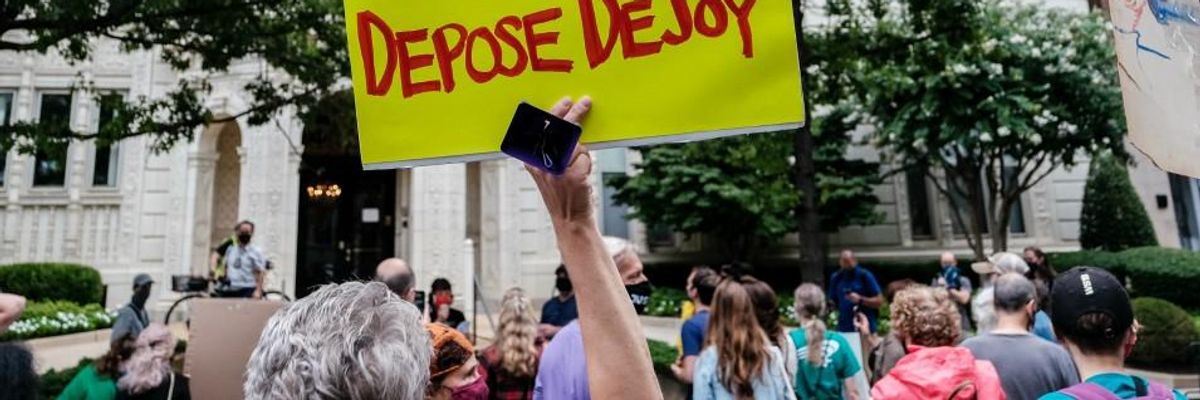An analysis published Thursday by the nonprofit Kaiser Family Foundation warns that package delays caused by Postmaster General Louis DeJoy's operational changes at the U.S. Postal Service could threaten the health of millions of Americans who rely on timely delivery of mail-order prescriptions.
KFF estimates that at least "14 million enrollees in Medicare Part D and large employer plans relied on mail-order pharmacies for at least one prescription in 2018, with a total of over 170 million prescriptions fulfilled."
"Drugs used to treat chronic conditions, including hypothyroidism, high cholesterol, hypertension, and Type 2 diabetes are among the prescriptions most commonly filled by mail order for Medicare Part D enrollees and large employer plan enrollees," KFF noted. "Therefore, delays in delivery due to changes to the operations of the U.S. Postal Service could lead to negative health consequences if it compromises patients' ability to adhere to their medication regimens."
"Mr. DeJoy, your decisions have cost Americans their health, their time, their livelihoods, and their peace of mind. I believe you owe them an apology for the harm you have caused."
--Sen. Gary Peters
In response to the KFF analysis, Sen. Bernie Sanders (I-Vt.) tweeted that the "attack on the Postal Service doesn't just threaten our election, it could very well be deadly."
"Millions rely on the Postal Service for prescription drugs that treat diabetes, high blood pressure, and more," Sanders wrote. "Postmaster General DeJoy must go."
Earlier this week, DeJoy vowed to temporarily suspend--but not reverse--USPS operational changes that resulted in nationwide mail backlogs. The Washington Postreported Thursday that after the November election, DeJoy intends to take "actions that could lead to slower mail delivery in parts of the country and higher prices for some mail services."
Recent news reports and anecdotal accounts relayed by lawmakers have detailed the impact DeJoy's policies had on medicine deliveries prior to his commitment to putting the changes on hold.
As he questioned DeJoy during a Senate Homeland Security and Governmental Affairs Committee hearing Friday, Sen. Gary Peters (D-Mich.) said his office has received more than 7,500 reports of mail delays from constituents, with some reporting that the delays forced them to skip doses of their medications.
"Mr. DeJoy, your decisions have cost Americans their health, their time, their livelihoods, and their peace of mind," said Peters. "I believe you owe them an apology for the harm you have caused."
As the New York Timesreported Thursday, "Veterans have been particularly affected by mail delays because the Department of Veterans Affairs relies on the Postal Service for delivery."
Jan Stowe, a 74-year-old veteran living in Traverse City, Michigan, told the Times that in July she suffered acute pain for four days because she did not receive the prescription Valium she takes for chronic muscle spasms.
"This medicine is to me lifesaving because it keeps me upright and mobile," said Stowe.

